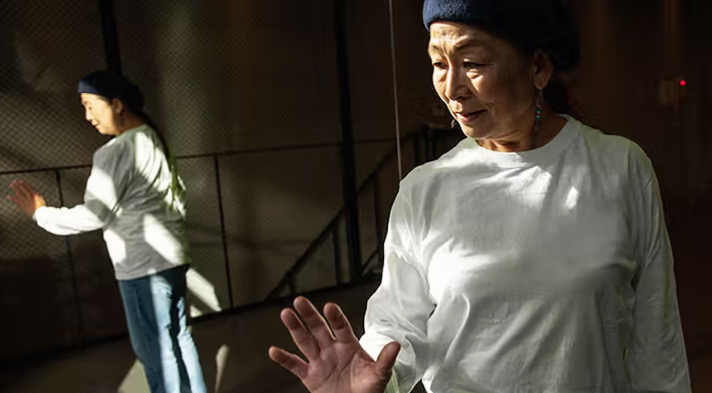New research helps explain why people move slower as they get older

As we age, our movements naturally tend to slow down. New research suggests that this may be partly because it costs older adults more energy to move than it does younger individuals.
Scientists believe these findings could help develop new diagnostic tools for diseases such as Parkinson’s and multiple sclerosis.
Researchers from the University of Colorado Boulder suggest that the increased energy cost of movement in older adults might be due to less efficient muscle cells and movement strategies. This research was published in The Journal of Neuroscience.
In the study, 84 healthy participants, including younger adults (ages 18-35) and older adults (ages 66-87), used a robotic arm to reach targets on a screen. The robotic arm functioned like a computer mouse. Older adults modified their movements at certain times to conserve energy, while younger participants moved more efficiently.
The study also explored the brain’s “reward circuitry,” which produces less dopamine as we age. Both younger and older adults performed better when they knew they would hear a “bing” sound as a reward. However, older adults started their movements about 17 milliseconds earlier on average, while younger adults simply moved their arms faster.
Researchers believe these insights could lead to new diagnostics for movement-related disorders. They emphasize the importance of understanding why movement slows with age and how it affects quality of life. Movement slowing can significantly impact physical and social activities, and understanding its causes could help identify interventions to mitigate this decline.
The findings also raise questions about the connection between movement speed and neurological disorders. Conditions like depression, which are linked to the brain’s reward circuitry, also result in slower movements. This suggests that movement speed may reflect more than just changes in muscle and brain circuits related to movement.
Experts agree that encouraging movement in older adults is crucial, despite the increased energy cost. Dr. Clifford Segil, a neurologist, emphasizes the adage, "If you don’t use it, you will lose it," highlighting the multiple health benefits of staying active.
Further research is needed to explore how the aging brain adapts to movement challenges and to verify the study's findings with direct neurological evidence. Understanding these adaptations could provide valuable insights for improving the lives of older adults.




